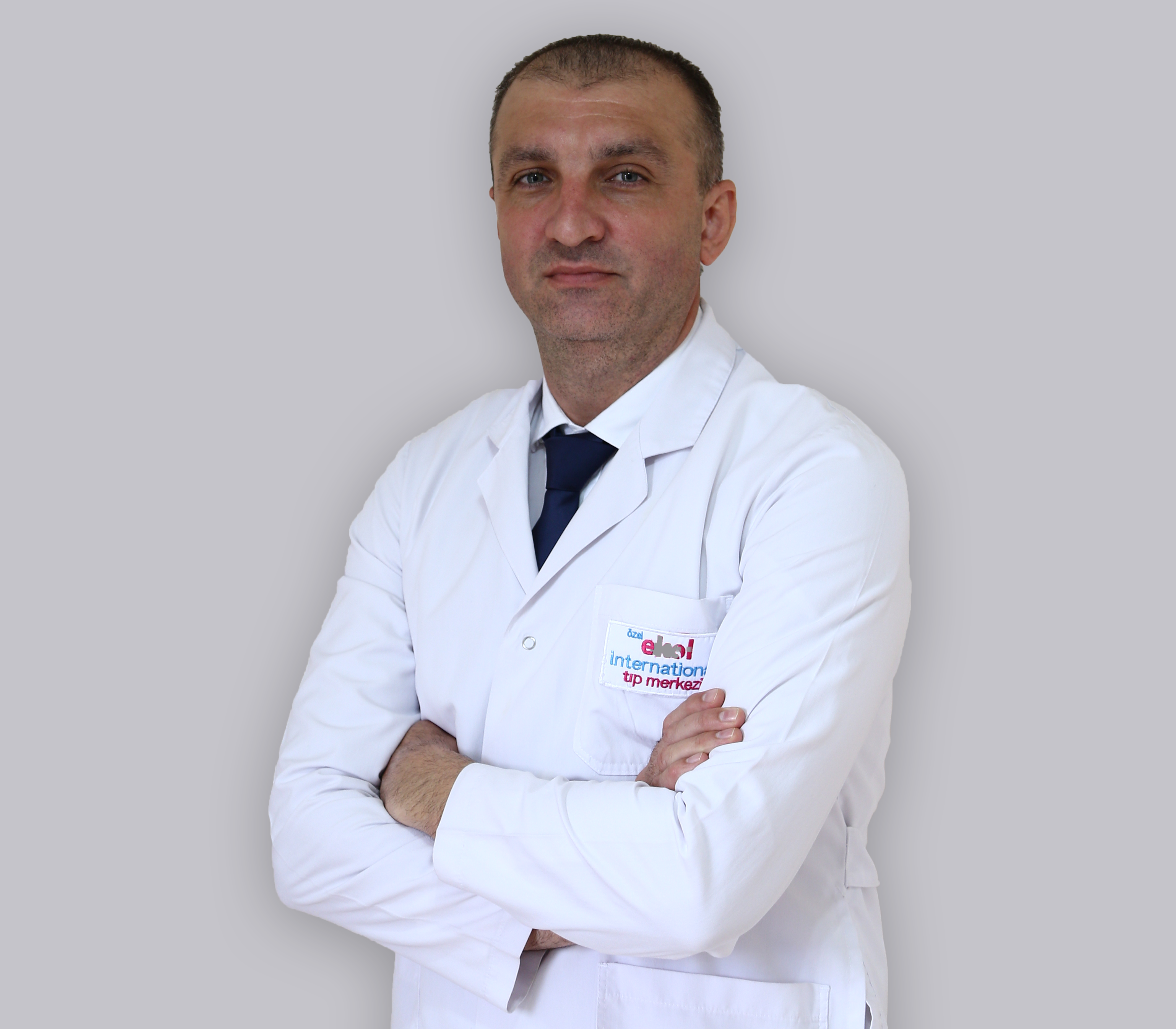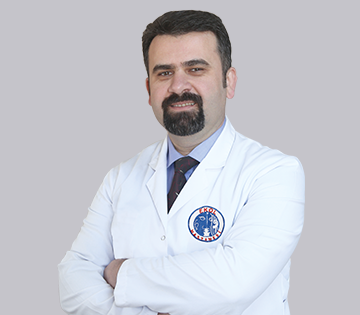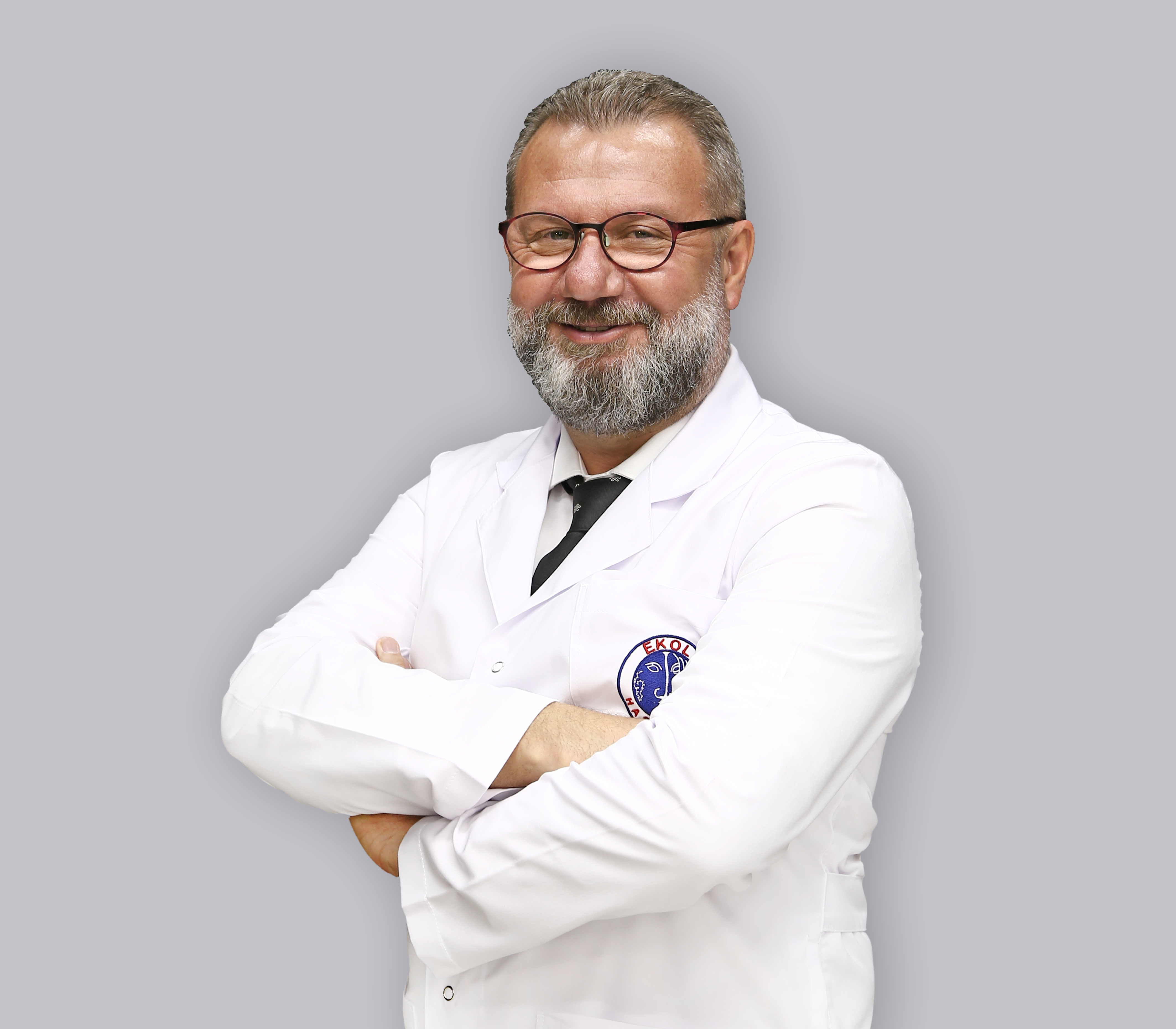A penile prosthesis can be placed when medications or vascular surgery does not help resolve erectile dysfunction, or when these medications or types of surgeries are contraindicated, objectionable or predicted to be useless. Before the surgery to place a penile prosthesis, Penile Colour Doppler Ultrasonography is performed to determine the blood flow in the penis and blood parameters are tested.
Penile prostheses are the materials that are produced to be inserted into the penis with surgery as a further treatment option in men with erectile dysfunction. There are basically two groups of penile prostheses.
Malleable penile prostheses: These are prostheses that remain constantly stiff, but they can be bent or folded.
Inflatable penile prostheses: Two or three-piece devices with an inflatable and extinguishable mechanism.
The constant hardness of the prostheses in the first group may be unnatural. In the second group, the prosthesis can be inflated and extinguished, giving them a more natural function.
The surgical intervention for this purpose can be performed with general or regional (anesthetizing half of the body below the waist) anaesthesia. Before the operation, the site of intervention should be cleaned very well using various special materials. A type of broad-acting antibiotics should be administered via injections. These antibiotics should be continued for at least 2 days after the surgery. If the sensation in the penis, ability to achieve orgasm, and the ejaculation function are normal before the surgery, these functions will be maintained after the prosthesis placement.
The prosthesis only allows the penis to become rigid regardless of sexual stimulation. The aim of prosthetic surgery is to provide this stiffness and upward angulation of the penis. Furthermore, insertion of a penis prosthesis does not increase the length or diameter of the penis or it does not directly affect the sexual desire of the individual.
How long does the operation take?
This operation may vary from 45 minutes to 1.5 hours depending on the type of prosthesis to be placed. Postoperative hospital stay may vary from 2 to 5 days depending on the pain and wound healing specific to the patient.
What Should Be Paid Attention To After the Surgery?
1- After leaving the hospital, no water contact is allowed for 1 week and the wound site should be kept very clean.
2- Sexual intercourse is not allowed for at least 4 weeks. At the end of this period, a required check-up is performed by the physician who performed the surgery. Then, sexual intercourse is allowed.
3- The presence of high fever, prolonged pain, discharge at the wound site, swelling and redness of the penis, inability to urinate or difficulty in urinating all require immediate contact with the surgeon.
The most important complication of prosthetic surgery is infection. Efforts should be spent to prevent infections by cleaning the site of intervention and administering broad-spectrum antibiotics to the patient. Antibiotics are continued for at least 2 days postoperatively. However, despite all precautions, prosthesis infection can be seen at rates from 1 to 10%
Patients with diabetes and spinal cord injury have a greater risk of infection. When infection occurs, antibiotics are restarted, and the prosthesis is removed.
Advantages of A Penile Prosthesis
This intervention allows partners to engage in sexual intercourse when they like to and to continue the intercourse for a satisfactory length of time. This type of treatment is the treatment of first choice when partner satisfaction is a concern.
Our services in this field include:
• KIDNEY AND URINARY TRACT CALCULUS DISEASES
• ANDROLOGY (SEXUAL FUNCTIONAL DISORDERS)
• LASER ENDOSCOPIC CALCULUS CRUSHING
• LASER KIDNEY CALCULUS SURGERY
• PERCUTANEOUS
• LASER ENDOSCOPIC URETER CALCULUS SURGERY
• KIDNEY DISEASES
• LAPAROSCOPIC KIDNEY CANCER SURGERY
• PROSTATE DISEASES
• LAPAROSCOPIC PROSTATE CANCER OPERATION
• LASER AND PLASMA KINETIC TREATMENT IN PROSTATE GROWTH
• IMPOTENCE
• PENILE PROSTHESIS IMPLANTATION
• LASER BLADDER CANCER AND CALCULUS SURGERY
• INFERTILITY - VARICOCELIAL TREATMENT
• URINARY INCONTINENCE
• CIRCUMCISION – UNDESCENDED TESTICLE
 He completed his medical education in Ege University Faculty of Medicine in 1998. Between 2000-2005, he specialized in Urology at Ege University Department of Urology. In 2013, he received the title of Associate Professor at Ege University Faculty of Medicine. After his specialty education, he continued his vocational education by participating in many different educations, courses and congresses. He took courses and educations on endourology courses, PNL - RIRS (closed kidney stone surgeries), Pelvic Organ Prolapse, urinary incontinence.
He continues to serve as the Chairman of the Turkish Continence Association Izmir Branch and a Member of the Turkish Continence Association Board of Directors. He is a member of Urological Surgery Association, Turkish Urology Association, European Urology Association, Continence Association, International Continence Society (ICS) Association. More than 200 scientific articles have been published in domestic and foreign scientific journals. Assoc. Prof. Dr. Adnan Şimşir, who speaks English fluently, is married and has one child.
Areas of interest: Laparoscopic Kidney Cancer Kidney Cysts Kidney Duct Stenosis Operations Holmium Laser Closed (Percutaneous / Flexible-RIRS) Kidney Stone Surgery Laser Endoscopic Ureteral Stone Surgery Radical Cystectomy Ileal Bladder (Artificial Bladder) Surgery Closed Bladder Cancer Surgery (TUR-M) Laser Closed Bladder Cancer and Bladder Stone Surgery Laparoscopic Prostate Cancer Surgery Endoscopic Prostate Treatment (Prostate treatment with laser and plasma kinetic technology TUR-P, TURIS, BiVAP, HOLEP) Testicular Cancer Treatments Urinary Incontinence Treatments Varicocele and Infertility Treatments Undescended Testicle Vesicoureteral Reflux Treatments Hipospadias (Prophet's Sunnah) Circumcision One-piece, two-piece, three-piece transverse-longitudinal Penile Prosthesis Implantation in the erection problem (impotence) (happiness stick)
He completed his medical education in Ege University Faculty of Medicine in 1998. Between 2000-2005, he specialized in Urology at Ege University Department of Urology. In 2013, he received the title of Associate Professor at Ege University Faculty of Medicine. After his specialty education, he continued his vocational education by participating in many different educations, courses and congresses. He took courses and educations on endourology courses, PNL - RIRS (closed kidney stone surgeries), Pelvic Organ Prolapse, urinary incontinence.
He continues to serve as the Chairman of the Turkish Continence Association Izmir Branch and a Member of the Turkish Continence Association Board of Directors. He is a member of Urological Surgery Association, Turkish Urology Association, European Urology Association, Continence Association, International Continence Society (ICS) Association. More than 200 scientific articles have been published in domestic and foreign scientific journals. Assoc. Prof. Dr. Adnan Şimşir, who speaks English fluently, is married and has one child.
Areas of interest: Laparoscopic Kidney Cancer Kidney Cysts Kidney Duct Stenosis Operations Holmium Laser Closed (Percutaneous / Flexible-RIRS) Kidney Stone Surgery Laser Endoscopic Ureteral Stone Surgery Radical Cystectomy Ileal Bladder (Artificial Bladder) Surgery Closed Bladder Cancer Surgery (TUR-M) Laser Closed Bladder Cancer and Bladder Stone Surgery Laparoscopic Prostate Cancer Surgery Endoscopic Prostate Treatment (Prostate treatment with laser and plasma kinetic technology TUR-P, TURIS, BiVAP, HOLEP) Testicular Cancer Treatments Urinary Incontinence Treatments Varicocele and Infertility Treatments Undescended Testicle Vesicoureteral Reflux Treatments Hipospadias (Prophet's Sunnah) Circumcision One-piece, two-piece, three-piece transverse-longitudinal Penile Prosthesis Implantation in the erection problem (impotence) (happiness stick) He was graduated from Karadeniz Technical Unjiversity Faculty of Medicine in 2003.
He completed his residency in 2009 in Ankara Dışkapı Yıldırım Beyazıt Research Hospital and and assumed the title of specialist in the field of urology. He joined the Laparoscopy Course in GATA. He completed the education for Percutan Renal Surgeries in Keçiören Research Hospital. His areas of research are Endourology, Urooncology, Andrology, Female Urology and Paediatric Urology.
He has 8 articles published in international journals, 7 articles in national journals, 5 poster presentations in international congresses and 2 poster presentations in national congresses.
He speaks very well English, married and has 2 children.
Interests:
Laparoscopic Kidney Cancer, Renal Cysts, Kidney Tract Stenosis / Obstruction Surgeries, Closed (Percutaneous / Flexible-RIRS) Renal Calculi Surgery with Holmium Laser Lithotripsy, Endoscopic Ureteral Calculi Surgery with Laser.
Closed Bladder Cancer Surgery (TUR-M), Ileal Bladder (Artificial Bladder) Surgery with Radical Cystectomy, Closed Bladder Cancer and Bladder Calculi Surgeries with Laser
Laparoscopic Prostate Cancer Surgery. Endoscopic Prostate Treatment (prostate treatment with laser and plasma kinetic technology, TUR-P, TURIS, BiVAP, HOLEP).
Testicular Cancer Treatments, Urinary Incontinence Treatments, Varicocele and Infertility Treatments, Undescended Testicle, Hipospadias (Sunnah of the Prophet), Circumcision.
One-piece, Two-piece, Three-piece Penile Prosthesis Implantation (joy stick / bliss stick) that can enlarge both transversally and longitudinally for hardening problems (impotency).
He was graduated from Karadeniz Technical Unjiversity Faculty of Medicine in 2003.
He completed his residency in 2009 in Ankara Dışkapı Yıldırım Beyazıt Research Hospital and and assumed the title of specialist in the field of urology. He joined the Laparoscopy Course in GATA. He completed the education for Percutan Renal Surgeries in Keçiören Research Hospital. His areas of research are Endourology, Urooncology, Andrology, Female Urology and Paediatric Urology.
He has 8 articles published in international journals, 7 articles in national journals, 5 poster presentations in international congresses and 2 poster presentations in national congresses.
He speaks very well English, married and has 2 children.
Interests:
Laparoscopic Kidney Cancer, Renal Cysts, Kidney Tract Stenosis / Obstruction Surgeries, Closed (Percutaneous / Flexible-RIRS) Renal Calculi Surgery with Holmium Laser Lithotripsy, Endoscopic Ureteral Calculi Surgery with Laser.
Closed Bladder Cancer Surgery (TUR-M), Ileal Bladder (Artificial Bladder) Surgery with Radical Cystectomy, Closed Bladder Cancer and Bladder Calculi Surgeries with Laser
Laparoscopic Prostate Cancer Surgery. Endoscopic Prostate Treatment (prostate treatment with laser and plasma kinetic technology, TUR-P, TURIS, BiVAP, HOLEP).
Testicular Cancer Treatments, Urinary Incontinence Treatments, Varicocele and Infertility Treatments, Undescended Testicle, Hipospadias (Sunnah of the Prophet), Circumcision.
One-piece, Two-piece, Three-piece Penile Prosthesis Implantation (joy stick / bliss stick) that can enlarge both transversally and longitudinally for hardening problems (impotency).  He completed his medical education in Hacettepe University Faculty of Medicine (English) in 1995. Between 1995-2000, he completed his specialization in Urology at Dokuz Eylül University Department of Urology.
After his specialization, he worked as a urology specialist at Bayındır State Hospital, Karşıyaka State Hospital, Kemalpaşa State Hospital.
After his specialty education, he continued his vocational education by participating in many different educations, courses and congresses. He received different educations such as endourology courses, PNL - RIRS (closed kidney stone surgeries) course, CİSED training (Association of Sexual Health Institute). He made frequent speeches in congresses, television programs and social media, especially in recent times. He is the member of Turkish Urology Association, Urological Surgery Association and European Urology Association.
Op. Dr. Tansu Turgut is fluent in English and his level of German is intermediate.
Areas of interest: Laparoscopic Kidney Cancer Kidney Cysts Kidney Duct Stenosis Operations Holmium Laser Closed (Percutaneous / Flexible-RIRS) Kidney Stone Surgery Laser Endoscopic Ureteral Stone Surgery Radical Cystectomy Ileal Bladder (Artificial Bladder) Surgery Closed Bladder Cancer Surgery (TUR-M) Laser Closed Bladder Cancer and Bladder Stone Surgery Laparoscopic Prostate Cancer Surgery Endoscopic Prostate Treatment (Prostate treatment with laser and plasma kinetic technology TUR-P, TURIS, BiVAP, HOLEP) Testicular Cancer Treatments Urinary Incontinence Treatments Varicocele and Infertility Treatments Undescended Testicle Vesicoureteral Reflux Treatments Hipospadias (Prophet's Sunnah) Circumcision One-piece, two-piece, three-piece transverse-longitudinal Penile Prosthesis Implantation in the erection problem (impotence) (happiness stick)
He completed his medical education in Hacettepe University Faculty of Medicine (English) in 1995. Between 1995-2000, he completed his specialization in Urology at Dokuz Eylül University Department of Urology.
After his specialization, he worked as a urology specialist at Bayındır State Hospital, Karşıyaka State Hospital, Kemalpaşa State Hospital.
After his specialty education, he continued his vocational education by participating in many different educations, courses and congresses. He received different educations such as endourology courses, PNL - RIRS (closed kidney stone surgeries) course, CİSED training (Association of Sexual Health Institute). He made frequent speeches in congresses, television programs and social media, especially in recent times. He is the member of Turkish Urology Association, Urological Surgery Association and European Urology Association.
Op. Dr. Tansu Turgut is fluent in English and his level of German is intermediate.
Areas of interest: Laparoscopic Kidney Cancer Kidney Cysts Kidney Duct Stenosis Operations Holmium Laser Closed (Percutaneous / Flexible-RIRS) Kidney Stone Surgery Laser Endoscopic Ureteral Stone Surgery Radical Cystectomy Ileal Bladder (Artificial Bladder) Surgery Closed Bladder Cancer Surgery (TUR-M) Laser Closed Bladder Cancer and Bladder Stone Surgery Laparoscopic Prostate Cancer Surgery Endoscopic Prostate Treatment (Prostate treatment with laser and plasma kinetic technology TUR-P, TURIS, BiVAP, HOLEP) Testicular Cancer Treatments Urinary Incontinence Treatments Varicocele and Infertility Treatments Undescended Testicle Vesicoureteral Reflux Treatments Hipospadias (Prophet's Sunnah) Circumcision One-piece, two-piece, three-piece transverse-longitudinal Penile Prosthesis Implantation in the erection problem (impotence) (happiness stick)